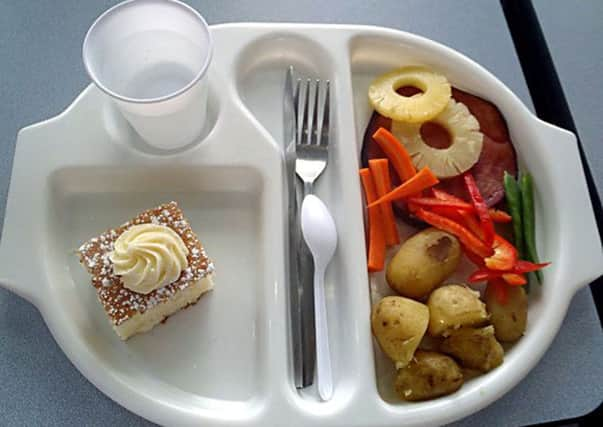Leader comment: School meal offerings still not serving their purpose


The concern is that despite healthy eating policies being put in place, and high-profile campaigns such as NeverSeconds drawing attention to the poor fare that can be on offer at lunchtime in the cafeteria, school meals continue to contain too much junk and we are still not teaching our children the basis of healthy eating.
And as long as items such as pizza and chips remain on the menu, then they are normalised in the eyes of impressionable children. While pupils have to be given an opportunity to eat healthily, we have to bluntly acknowledge that this effort is undermined unless the problem foods are denied.
Advertisement
Hide AdAdvertisement
Hide AdOf course, the argument is that children who want junk food will leave the grounds of the school to find a local shop or takeaway, but that should not be a reason to give in. If we are serious about culture change via education, then we have to accept this process will take time, and with it will come a gradual reduction in those making unhealthy choices beyond the school gates.
To change the culture, school meals have to give children both an opportunity to eat healthily, and encouragement to do so.
It is worrying that while school meals might be technically within government guidelines for salt, fat and sugar, there can still be little “good” in them in terms of the requirements of a balanced diet. There is evidence of some children consuming more than the government-recommended daily fat, salt or sugar intake in a single serving, and today’s report says that some school-age children consume three times the recommended level of free sugars.
The role of schools in improving the diet of children is more important than ever before, as Scotland continues to experience an increased level of obesity that was unthinkable only a generation ago, and contributes to the development of medical complications which put additional burden on the NHS. As ever, prevention is far more desirable that the expensive search for a cure.
Schools can try to educate children about why an improved diet is in their best interests, but they also provide what might be the only setting where those children can access a healthy meal. If children are not served nutritious food at home, then school might be the first and last place in a lifetime where an introduction to healthy eating is possible.
The Scottish Government has said recently said it will look to review its guidelines for local authorities. The Obesity Action Scotland report suggests that such a review is absolutely necessary, and if new guidelines are to be put in place – as appears to be required – then they must ensure our children are presented with a far better offering, and experience, than is currently delivered.